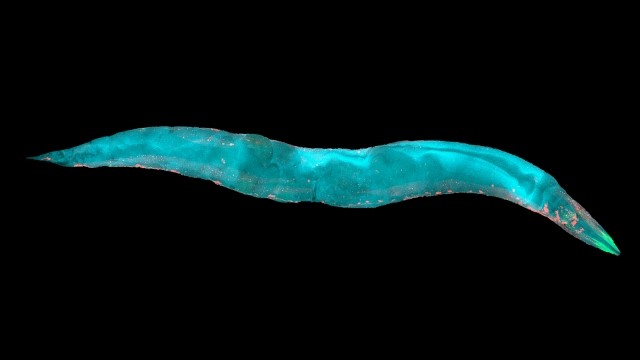
Genetically modified worms sniff out cancer in urine
Some cancers are easier to spot early than others, and pancreatic cancer is on the difficult end of the spectrum.
Patients typically don’t experience symptoms until the cancer is advanced or has spread, and because the pancreas is located deep within the body, it’s hard to spot tumours during physical exams.
Imaging (MRIs, ultrasounds, etc.) tests —can be expensive, while blood tests can be expensive and unreliable.
Researchers have long known that cancer can cause changes in how people smell — this is how some dogs are able to smell cancer in a person’s breath or urine.
C. elegans are millimetre-long worms with a naturally strong sense of smell — and with a little genetic modification, the researchers were able to get the creatures to react to the scent of pancreatic cancer in urine.
When tested using urine samples from 95 healthy patients and 104 people with pancreatic cancer, the worms correctly identified 57 healthy patients and 88 cancer patients.
A sensitivity of 84.6% and specificity of 60% is not great — incorrectly flagging 40% of people who don’t have cancer — but depending on the test’s final cost and improvements in accuracy, it may be useful for pancreatic cancer screening for high-risk individuals, letting people know they might want to ask their doctor to run additional tests.
The new test is not meant to diagnose pancreatic cancer, but could help boost routine screening as urine samples can be collected at home without the need for a hospital visit.
 English
English Arabic
Arabic


